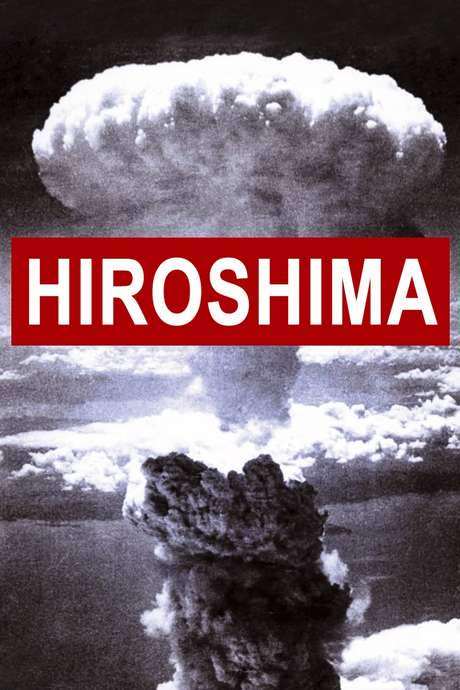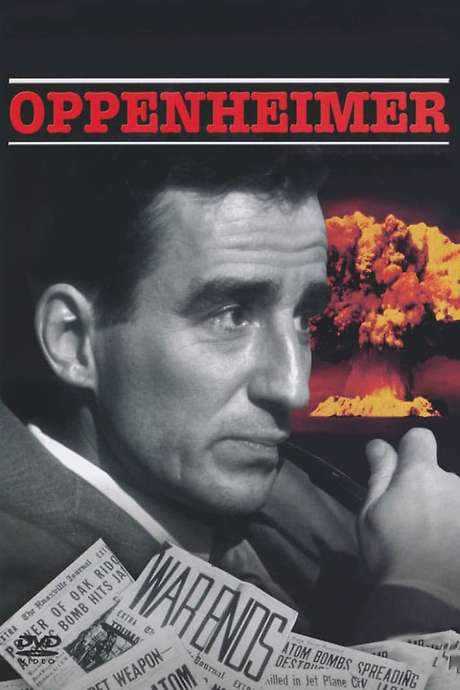Oppenheimer 2023

Drawing from Kai Bird and Martin J. Sherwin’s biography, American Prometheus, this film explores the life of J. Robert Oppenheimer, the brilliant theoretical physicist who spearheaded the Manhattan Project's development of the first nuclear weapons. His work ushered in the Atomic Age, forever changing the world and grappling with the profound moral and political implications of his creation.
Does Oppenheimer have end credit scenes?
No!
Oppenheimer does not have end credit scenes. You can leave when the credits roll.
Meet the Full Cast and Actors of Oppenheimer
Explore the complete cast of Oppenheimer, including both lead and supporting actors. Learn who plays each character, discover their past roles and achievements, and find out what makes this ensemble cast stand out in the world of film and television.
External Links and Streaming Options
Discover where to watch Oppenheimer online, including streaming platforms, rental options, and official sources. Compare reviews, ratings, and in-depth movie information across sites like IMDb, TMDb, Wikipedia or Rotten Tomatoes.
Ratings and Reviews for Oppenheimer
See how Oppenheimer is rated across major platforms like IMDb, Metacritic, and TMDb. Compare audience scores and critic reviews to understand where Oppenheimer stands among top-rated movies in its genre.

The Movie Echo Score
Oppenheimer registers as a largely triumphant historical drama, buoyed by its ambitious scale and technical execution. Critics and most viewers commend the film’s visual grandeur, immersive soundscape, and diligent craftsmanship, while noting uneven pacing and occasional dialogue density. The narrative’s weighty subject matter and dense exposition generate mixed reactions, yet the overall impact remains compelling. In sum, the work stands as a high‑quality, though imperfect, entry in contemporary biopic cinema.
The Movie Echo Score Breakdown for Oppenheimer

Art & Craft
In terms of direction and cinematography, the film repeatedly draws praise for its IMAX depth and meticulous framing. Reviewers highlight the practical effects, production design, and disciplined editing as hallmarks of Nolan’s craft. Some criticism arises around rapid cuts that compress dialogue, but the visual sophistication largely outweighs these concerns. Overall, the artistic execution is deemed exemplary.

Character & Emotion
When evaluating character depth, opinions are split between strong performances and perceived emotional restraint. Several reviewers applaud the cast’s commitment and nuanced portrayals, yet others note monotone delivery and limited emotional range. Confusion over character names is cited as a barrier for some viewers. Consequently, the character work is solid but not uniformly resonant.

Story & Flow
The storyline’s ambition is evident, with critics acknowledging its scope and historical relevance. However, pacing issues—particularly a slower opening and a dense middle—receive repeated mention. Some viewers feel the narrative sacrifices dramatic momentum for exposition. While the plot sustains interest, its pacing irregularities temper overall narrative satisfaction.

Sensory Experience
Sensory elements receive consistent acclaim, especially the orchestral score and immersive sound design. Reviewers describe the soundtrack as masterful and the audio landscape as reinforcing tension. Visual style, from IMAX clarity to practical effects, is praised for its realism and atmospheric impact. Minor critiques of jarring visual inserts exist, but the sensory experience is largely celebrated.

Rewatch Factor
Rewatch potential is highlighted by multiple viewers who report multiple viewings and sustained intrigue. The film’s layered composition, rich soundscape, and thematic depth invite repeated analysis. While some find the initial pacing challenging, the overall consensus is that the experience rewards subsequent viewings, cementing a strong rewatch factor.

90
Metascore
8.4
User Score


93%
TOMATOMETER

91%
User Score

8.2 /10
IMDb Rating

80
%
User Score

4.60/5
From 20 fan ratings
Take the Ultimate Oppenheimer Movie Quiz
Challenge your knowledge of Oppenheimer with this fun and interactive movie quiz. Test yourself on key plot points, iconic characters, hidden details, and memorable moments to see how well you really know the film.
Oppenheimer Quiz: Test your knowledge about the complex life and work of J. Robert Oppenheimer as depicted in the 2023 film.
What significant event does J. Robert Oppenheimer find himself at the center of in 1954?
A Nobel Prize ceremony
A scientific conference
A security hearing
A college graduation
Show hint
Awards & Nominations for Oppenheimer
Discover all the awards and nominations received by Oppenheimer, from Oscars to film festival honors. Learn how Oppenheimer and its cast and crew have been recognized by critics and the industry alike.
96th Academy Awards 2024



Cinematography
Costume Design

Film Editing
Makeup and Hairstyling
Music (Original Score)

Production Design
Sound

77th British Academy Film Awards 2024






Best Cinematography
Best Costume Design
Best Editing
Best Make Up & Hair
Best Original Score
Best Production Design
Best Sound
29th Critics' Choice Awards 2024
Best Picture




Best Acting Ensemble

Best Cinematography
Best Editing
Best Production Design
Best Score
Best Hair and Makeup
Best Visual Effects
30th Annual Screen Actors Guild Awards 2024












76th Directors Guild of America Awards 2024

39th Artios Awards 2024
Feature Big Budget – Drama
81st Golden Globe Awards 2024
Best Motion Picture – Drama





Best Original Score
Cinematic and Box Office Achievement
51st Saturn Awards 2024
Best Thriller Film





Best Film Editing
Best Film Production Designer
Best Film Costume Design
Best Make‑Up in a Film
Best Film Special / Visual Effects
20th Irish Film & Television Academy Awards 2024
Best Actor in a Supporting Role
Full Plot Summary and Ending Explained for Oppenheimer
Read the complete plot summary of Oppenheimer, including all major events, twists, and the full ending explained in detail. Explore key characters, themes, hidden meanings, and everything you need to understand the story from beginning to end.
In 1945, the successful testing of the first atomic bomb marks a significant achievement for J. Robert Oppenheimer, who served as the director of the Manhattan Project at Los Alamos. However, as the political landscape shifts, key decisions regarding the bomb’s deployment are taken out of Oppenheimer’s hands and those of his fellow scientists. Following that momentous test, President Harry S. Truman orders the bombings of Hiroshima and Nagasaki, ignoring Oppenheimer’s insistence that Truman should inform Stalin before any action was taken against Japan. This oversight escalates tensions with the Soviets, leading Oppenheimer to believe that these events initiated the nuclear arms race.
Despite receiving public accolades, Oppenheimer struggles with profound guilt over the mass destruction and deaths caused by the bomb. His confrontation with Truman reveals this torment, as Oppenheimer admits his remorse, only to be reprimanded by Truman, who reinforces his own accountability for the decision to use the weapon. Oppenheimer argues for the limitation of nuclear armament development—a plea Truman dismisses, showing the chasm between them.
In the backdrop, Rear Admiral Lewis Strauss, a retired Naval officer and senior member of the U.S. Atomic Energy Commission (AEC), emerges as a key antagonist. Strauss, who had previously appointed Oppenheimer as a scientific advisor to the AEC after the war, finds Oppenheimer’s influence contentious. As Oppenheimer contends for control over nuclear proliferation, the AEC’s interest in Teller’s hydrogen bomb rises amid the escalating Cold War. Oppenheimer, aware of the significant technical challenges, discourages pursuing the hydrogen bomb, while advocating for international control over nuclear weapons.
Tensions escalate as AEC Chairman Lewis Strauss, deeply resentful after being publicly rebuffed by Oppenheimer regarding the export of radioisotopes—used by other nations to assist in developing atomic capabilities—feels humiliated. Oppenheimer’s suggestions for U.S.-Soviet negotiations post their own bomb detonation further alienate him from Strauss, who believes that if the U.S. develops a hydrogen bomb, the Soviets will have no choice but to follow suit.
With Oppenheimer’s opposition to the hydrogen bomb program, Truman ultimately approves its development, despite the scientist’s dire warnings. Strauss, convinced of Oppenheimer’s supposed collusion with the Russians during the Manhattan Project, plots to undermine Oppenheimer’s political standing. In a calculated move, he orchestrates a private hearing on Oppenheimer’s security clearances in 1954, leading to a verdict that appears predetermined.
The hearing is marked by manipulation and bias, particularly through the actions of Roger Robb, who is appointed as special counsel by Strauss. While Robb has comprehensive access to Oppenheimer’s security file, Oppenheimer’s legal representation is left in the dark. The outcome devastates Oppenheimer’s reputation, as the board rescinds his Q clearance, significantly diminishing his influence over nuclear policy.
In 1959, during Strauss’ Senate confirmation hearing for the Secretary of Commerce position, accusations arise about his motivations behind orchestrating Oppenheimer’s disgrace, ultimately leading to a Senate vote against his nomination. A gesture of redemption arrives in 1963 when President Lyndon B. Johnson awards Oppenheimer the Enrico Fermi Award, symbolizing a shift in his public perception. Flashbacks showcase a pivotal conversation between Oppenheimer and Einstein, revealing Oppenheimer’s lingering belief that their actions had unleashed a catastrophic chain reaction—the nuclear arms race—that could ultimately lead to global destruction.
Uncover the Details: Timeline, Characters, Themes, and Beyond!

Coming soon on iOS and Android
The Plot Explained Mobile App
From blockbusters to hidden gems — dive into movie stories anytime, anywhere. Save your favorites, discover plots faster, and never miss a twist again.
Sign up to be the first to know when we launch. Your email stays private — always.
Watch Trailers, Clips & Behind-the-Scenes for Oppenheimer
Watch official trailers, exclusive clips, cast interviews, and behind-the-scenes footage from Oppenheimer. Dive deeper into the making of the film, its standout moments, and key production insights.
Oppenheimer Themes and Keywords
Discover the central themes, ideas, and keywords that define the movie’s story, tone, and message. Analyze the film’s deeper meanings, genre influences, and recurring concepts.

Unlock the World of Movies with Our Comprehensive Wiki
Dive into our Movie Wiki for in-depth film encyclopedia entries, including cast biographies, production trivia, plot synopses, behind-the-scenes facts, and thematic analyses. Whether you’re researching iconic directors, exploring genre histories, or discovering hidden easter eggs, our expertly curated movie database has everything you need to fuel your cinematic passion.

Similar Movies To Oppenheimer You Should Know About
Browse a curated list of movies similar in genre, tone, characters, or story structure. Discover new titles like the one you're watching, perfect for fans of related plots, vibes, or cinematic styles.
Quick Links: Summary, Cast, Ratings, More

What's After the Movie?
Not sure whether to stay after the credits? Find out!
Explore Our Movie Platform
New Movie Releases (2026)
Famous Movie Actors
Top Film Production Studios
Movie Plot Summaries & Endings
Major Movie Awards & Winners
Best Concert Films & Music Documentaries
Movie Collections and Curated Lists
© 2026 What's After the Movie. All rights reserved.







































